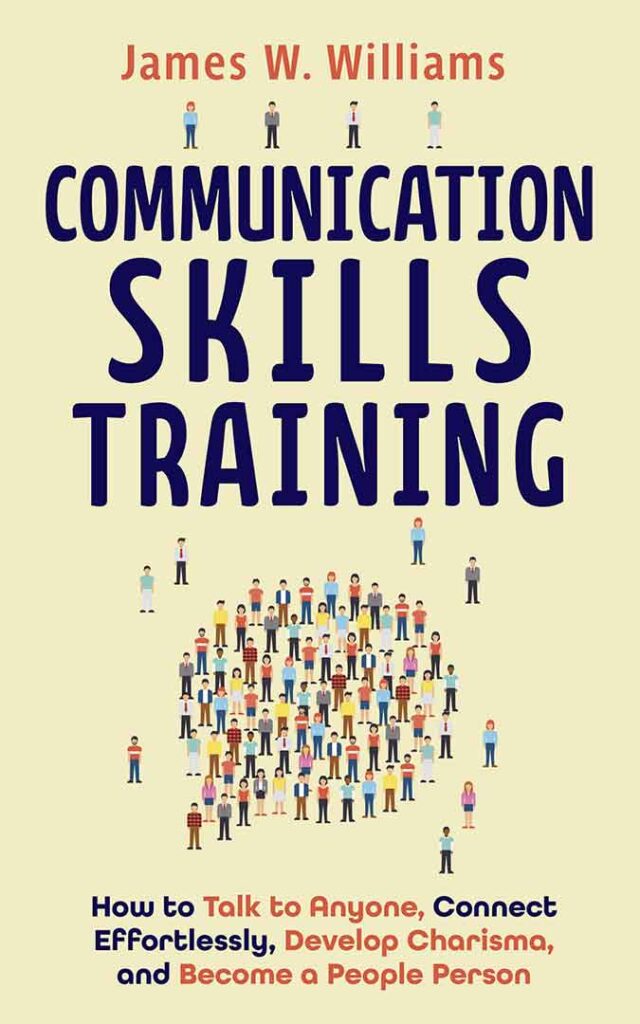Interpersonal communication and group communication skills are vital to the success of an individual or an organization. We may not give full attention to how we communicate, and we may take it for granted, thinking that it is inherent in us as human beings.
Good communication skills aid us in all aspects of our lives, whether in a personal or professional setting and everything in between.
Having strong interpersonal communication and group communication skills allows us to bring forth our ideas so that others can accurately and quickly understand. On the other hand, poor communication skills often lead to frustrations and misunderstandings.
Career-wise, having good communication skills is an advantage as it is among the topmost in-demand soft skills. In fact, a recent study conducted by a leading job search website shows communication skills as a top sought-after skill among employers across different industries.

Difference Between Interpersonal Communication and Group Communication
To better understand and shed more light on the concept of communication as an essential skill, let us first discuss interpersonal communication.
Interpersonal communication refers to face-to-face communication wherein people exchange information and feelings through verbal and non-verbal means.
This is an easy and convenient way of communicating between two people because feedback is given right away after the message was conveyed.
This form of communication is vital in our day-to-day life. After all, it occurs in almost everything we do – from talking to our family and interacting with our colleagues.
On the other hand, group communication is exchanging information between three or more people or within groups.
This kind of team interaction plays a significant role in the workplace. It can be an engagement between the employees and employer, employees to employees, the business’s interaction with customers, etc.
How to Improve Communication Skills?
Keeping that in mind, we must hone our communication skills, especially considering how integral they are in our daily lives.
With that said, check out the following tips to learn more about improving your communication skills.
1. Maintain Eye Contact
Eye contact is a significant factor when it comes to communication. Whether it is a face-to-face exchange or an exchange between you and many people, eye contact is essential to get your message across.
Our eyes are a reflection of what is inside us. Looking to another person’s eyes when talking to them can speak volumes.
Maintaining eye contact during conversation shows how focused and interested with are with the person or crowd we are communicating with subtly. Moreover, eye contact also conveys the message of trust and sincerity.
2. Avoid Fillers
Fillers are considered background noise when we are communicating. Therefore, using fillers in our communication, especially when speaking, can cause misunderstandings. Fillers are not necessary for a conversation.
Using fillers can distract your audience or the person you are talking to. When you use fillers, it shows that you are not confident and you are not prepared.
You can eliminate fillers by practicing the way you speak or write. Be conscious about how you use them and try not to be distracted, especially when speaking. Ask someone to listen to you while you talk and note where you use fillers, and eliminate them from your speech.
3. Be Respectful
Respect other people’s time by focusing on them and what they have to say when you communicate. Avoid distractions, refrain from checking your phone or watch, and concentrate on giving them your undivided attention. Remain focused and acknowledge what they have to say.
Let the person speak without interrupting to understand their stand or their point of view truly. Additionally, do not jump in and try to finish what they are saying.
Make them feel that they are worth listening to by giving them the time to convey their message. Lastly, thank them for their time and for sharing their ideas with you.
4. Mind Your Body Language
Communication is not limited to only speaking and writing. We can also communicate with our body movements and gestures.
As such, it isn’t just about what is said but also about how it was told. Body language is essential, especially if there is no conversation taking place.
With that said, refrain from using gestures and postures that signal boredom and disinterest—fidgeting, crossing your arms, or putting them on your hips signal defensiveness, indifference, and distrust.
So, relax your posture, maintain eye contact, uncross your arms, and smile.
5. Active Listening
Active listening is listening with full attention and concentration. Listen patiently to what others have to say. Clarify unclear information by asking questions and summarizing the information given to make sure that you fully understand the message.
You can also paraphrase, nod, and maintain eye contact to let the speaker know that you know what they mean.
Active listening is an excellent way to show that what someone has to say matters and make them feel respected and understood.

6. Don’t Make Assumptions and Presumptions
Sometimes, we jump to conclusions instead of asking questions to clarify our concerns. You should refrain from making assumptions and presumptions for effective communication, especially if there is missing or unclear information.
These assumptions and presumptions are usually our judgments based on our background and personal experiences.
Instead, you can ask questions if there are things you don’t understand. Make sure to ask factual questions. Once you have the information you need, you will not be making premature assumptions that can significantly affect your relationship with others.
7. Be Truthful and Sincere
Be honest and sincere with your interactions with others, whether face-to-face or in a group setting. By showing honesty and sincerity, you position yourself as someone who is accountable and with integrity.
Don’t tell a lie to cover up something or hide any information. Lying or giving misleading information can significantly affect your reputation.
If there is any mistake in the communication process, be accountable and own up to it. Don’t attempt to make something that is not true and always show empathy and genuine interest toward others.
8. Encourage Feedback
Feedback is vital to further self-improvement. Ask a workmate or a family member to give an honest review and observation of your communication skills.
Encourage them to tell what your strengths and weaknesses are and work on improving or correcting them.
If taken constructively, feedback can drastically improve our happiness, a sense of purpose, and well-being.
9. Read
Reading is a cost-effective way to broaden our horizons and develop our knowledge about the things around us.
It also allows us to learn more about subjects and areas we want to improve on. Additionally, the more we know, the more we can articulate what we are trying to say.
For example, to improve your communication skills, you can grab a copy of my book Communication Skills Training. It can help you clearly and effectively communicate your thoughts, feelings, and ideas.
10. Practice
Practice makes perfect. Not all people are gifted with the ability to communicate well, but don’t let this discourage you from doing your best.
Do everything you can to incorporate what you have learned from this article in your day-to-day communication, and you will be an excellent communicator in no time.
Why Are Interpersonal Communication and Group Communication Important?
Interpersonal communication is essential in maintaining healthy and fulfilled relationships in the workplace and in our personal lives.
As an everyday skill, we used this ability to build good relationships by understanding our family, friends, colleagues, and people.
Most employers and coworkers prefer to work with someone who has excellent interpersonal communication skills because they are easy to get along with.
They tend to be more transparent and effective. Someone who has excellent interpersonal communication skills in the workplace is a potentially good leader and usually develops the best solutions to a problem.
Group communication is also an essential factor for the growth and success of a business. By having effective group communication, conflicts in the workplace are easily managed and prevented.
It also increases productivity and work efficiency, projects and encourages a sense of trust and reliability, and fosters excellent workplace rapport and camaraderie.
Furthermore, group communication fosters a positive workplace relationship not only between coworkers but also with employers. People who communicate well in a team are keener to give better solutions by creating an atmosphere of trust and openness.

Final Thoughts
Effective communication is essential and a skill that one must master to live a happy and fulfilling life. It’s imperative for us to effectively convey what we want to have effective and meaningful relationships.
As healthy relationships are some of the most critical factors in our lives, we must continue to nourish and strengthen them through effective and meaningful communication.
In contrast, when we lack the necessary interpersonal and group communication skills, we tend to isolate ourselves. Additionally, we won’t be able to keep our relationships and maintain a happy and positive life.
So, hone your communication skills and preserve your interpersonal relationships to live a more positive and happier life.
Was this post helpful? Comment below, and let us know what you think. Also, don’t forget to share this post with your friends!
READ NEXT:
“When people talk, listen completely. Most people never listen”. – Ernest Hemingway






